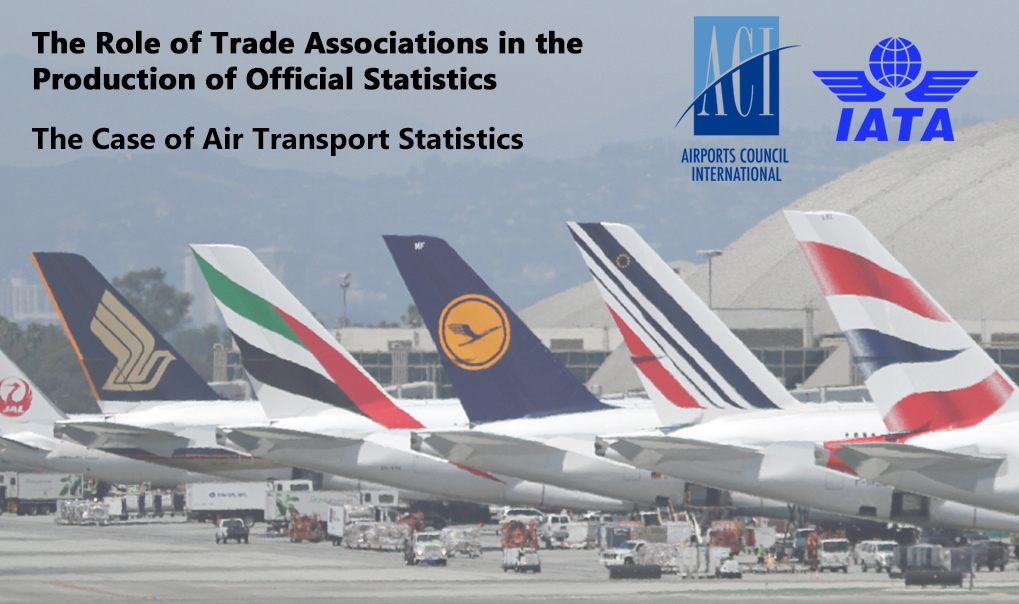The Role of Trade Associations in the Production of Statistics, the Case of Air Transport Statistics
Conference
64th ISI World Statistics Congress - Ottawa, Canada
Format: CPS Poster
Keywords: officialstatistics
Session: CPS Posters-08
Wednesday 19 July 2 p.m. - 3:20 p.m. (Canada/Eastern)

Abstract
This paper aims to explain the potential role that trade associations can make in the production of official statistics, levering their specific industry expertise and contacts. The paper highlights the example of the production of air transport statistics.
Traditionally, the production of official statistics lies within the realm of the respective national statistics systems, typically led by the National Statistics Office (NSO). Contributing institutions are also foremost within the public domain, such as Ministries, Central Banks, Fiscal Authorities, etc. Not often do trade associations play a significant role.
Trade associations can contribute to the statistics making of their respective sector by leveraging their direct contacts and expertise, provided that sufficient coverage of their data collection mechanisms and a sufficient level of data processing capacity are available.
The advantages of data collection through trade associations constitute (1) the timeliness of data collection, (2) the application of specific industry expertise, (3) direct contact with reporting entities, and (4) industry ownership of and support to the resulting statistics and analysis reports. These factors are of great benefit to the relevance and overall quality of the statistics.
Trade associations may also have their limitations. (1) Associations may not have sufficient industry coverage, through their limited membership coverage or other practical limitations to data gathering. (2) Associations may not be able to disclose all relevant data of their members. (3) Associations may not necessarily have the expertise to engage in the production of statistics. (4) Associations may, in their role as industry advocators, be limited to certain topics of interest.
At the international level, there are two bodies that oversee the production of air transport statistics, the International Civil Aviation Organization (ICAO), and EUROSTAT. Statistical guidelines and productions are exchanged vis-à-vis the relevant authorities at national levels.
ICAO works closely with two industry trade associations: the International Air Transport Association (IATA), representing the world’s airlines, and the Airports Council International (ACI), representing the world’s airports. Both associations have their own data collection mechanisms and in-house statistics productions and provide the statistics to the wider community through ICAO. In the case of airport statistics, ACI and ICAO have even consolidated the principal data collection scheme. Methodological frameworks, concepts, and definitions are set under the auspices of ICAO in its role as secretariat on behalf of ICAO’s member states. An ICAO-led advisory panel that consists of national delegations, as well as the two Associations, is in place to review challenges and statistics innovations.
In this context, we observe a beneficial conjunction of statistics production and expertise that can serve as an example to other industries or sectors. The associations have timely and agile data collection mechanisms and embody a high level of industry expertise. Industry coverage of both associations is large, assuring sufficient industry representation. Under the auspices of ICAO, the resulting industry statistics are further disseminated to a wide audience and used as anchors or inputs for subsequent official statistics production processes.

